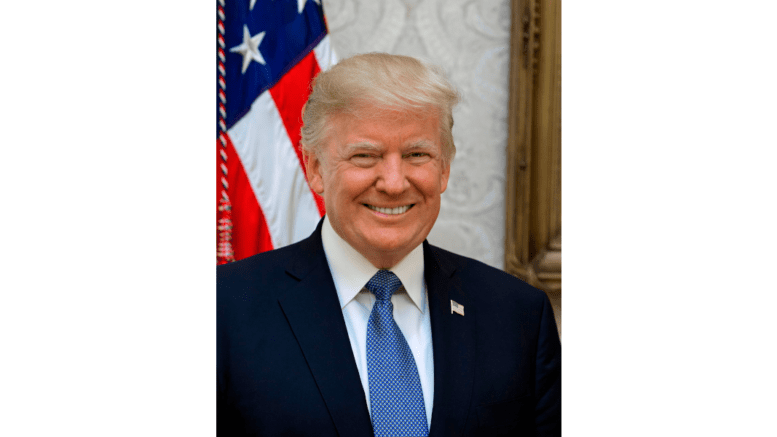by Stanley Dunlap, Georgia Recorder [This article first appeared in the Georgia Recorder, republished with permission]
November 16, 2022
A major investigation into 2020 election interference by allies of former President Donald Trump is escalating at the Fulton County courthouse, with some of the biggest national GOP players ordered to testify in front of a Georgia grand jury.
On Tuesday, Republican Gov. Brian Kemp took the stand, and in the coming days, U.S. Sen. Lindsey Graham, R-S.C., is expected to do the same as the months-long investigation picks up steam with the midterm elections no longer standing in the way. All signs point to Trump’s vulnerability to criminal prosecution in Georgia, potentially igniting a political firestorm as the former president trains his sights on another run for the White House in 2024.
Earlier this year, the special grand jury was appointed to investigate whether Trump’s team interfered with Georgia’s 2020 presidential election. Trump lost to President Joe Biden by fewer than 12,000 votes.
The Brookings Institute released a report this week that says Trump appears to be at substantial risk of prosecution in Georgia for several criminal charges that could include solicitation and conspiracy to commit election fraud and interfering in elections. Just the same, Trump announced Tuesday that he would run for president for a third time to compete in an election system he has perpetually claimed is rigged.
Fulton County District Attorney Fani Willis’s investigation was boosted by the public release of a recorded phone call in which Trump pressed Georgia Secretary of State Brad Raffensperger to “find” enough ballots to overcome Biden’s victory.
“While the elements of these crimes vary, the gravamen of these offenses is that through conduct such as the call to Raffensperger demanding that he ‘find 11,780 votes’ and the potential orchestration of the false electors scheme, Trump may be shown to have exhorted Georgia officials to change the lawful outcome of the election,” the Nov. 14 Brookings report said. “Trump’s full course of conduct before and after the election suggests clear and consistent intent to solicit and pressure government officials to reverse the election results.”
Special grand jury activity slowed during the midterm voting day Nov. 8, but now it’s picking back up in preparation for a grand jury report recommending whether Willis should pursue charges in a probe that’s so far engulfed some of Trump’s closest allies. Among them are Trump’s ex-chief of staff Mark Meadows and Trump’s former personal attorney Rudy Giuliani, named by prosecutors as a target for his role in pushing baseless allegations of widespread voter fraud in Georgia.
Kemp is not considered a target of the probe, but he became a focus of the investigation due to Trump’s efforts to pressure the governor to illegally overturn the 2020 election results. Kemp reluctantly took the stand on Tuesday after delaying his appearance until after his successful re-election over Democratic challenger Stacey Abrams.
Graham is expected to appear in the Fulton County courtroom in coming days after losing several attempts to avoid a subpoena, including a last-ditch plea to the U.S. Supreme Court.
The Brookings report asserted that Trump and his cohorts, including 16 Georgia false electors, might have committed other crimes, including making false statements, improper influence on government officials, and forging documents.
Trump and his allies are accused of lying about the 2020 election repeatedly to Georgia officials, as well as using intimidation and threats to influence the outcome of the election, experts say in the report.
One of the so-called election deniers who could be brought before the grand jury is Georgia’s newly-elected Republican lieutenant governor, Sen. Burt Jones, who served as one of the 16 fake Republican electors who signed documents proclaiming Trump as the victor of the 2020 election.
Jones successfully blocked a subpoena from Willis because of her political connections to his Democratic opponent in the midterm election, leaving it up to the Prosecuting Attorneys’ Council of Georgia to appoint another district attorney’s office to handle the Jones’ portion of the probe.
According to panelists at a Defend Democracy Project briefing this week, charges may be filed against Trump and fake voters this year as part of the escalating Georgia criminal case and that more may follow related to the U.S. Department of Justice’s investigation of the Jan. 6th U.S. Capitol breach.
“Trump’s audio tape demanding Brad Raffensperger to find 11,780 votes that did not exist, is a smoking gun. So are the false electoral certificates,” said Norm Eisen, a Brookings Institute Senior Fellow and counsel in Trump’s first impeachment trial. “The door is going to be slammed on him in court, as it has been over and over again already. The law and facts are not on his side and we believe he will likely be charged.”
The types of questions prosecutors can ask Graham, Kemp, and some of the other witnesses are limited by legal protections regarding their responsibilities as elected officials.
Graham has protections as a sitting member of Congress to decline to talk about issues related to his official duties as a senator. His lawyers argued that virtually everything is off limits, since he tried to get information related to certifying the 2020 presidential election.
Graham can be grilled by prosecutors over whether his conversations with Georgia election officials were efforts to sabotage state elections, such as a phone conversation with the secretary of state about the state’s disqualification procedures for absentee ballots.
Georgia Recorder is part of States Newsroom, a network of news bureaus supported by grants and a coalition of donors as a 501c(3) public charity. Georgia Recorder maintains editorial independence. Contact Editor John McCosh for questions: info@georgiarecorder.com. Follow Georgia Recorder on Facebook and Twitter.
